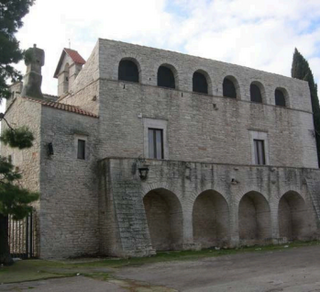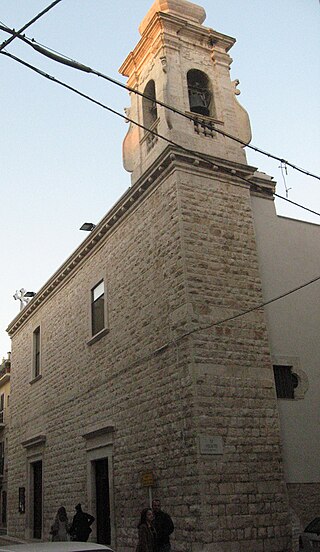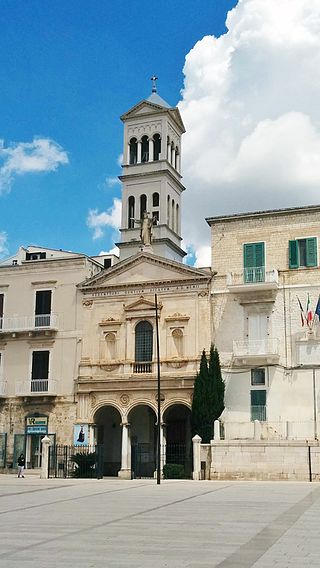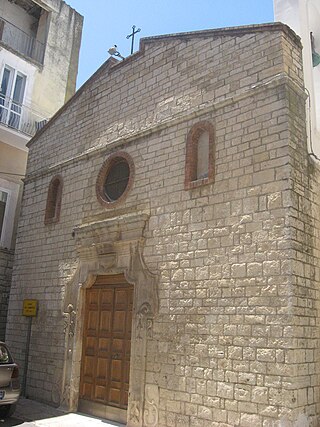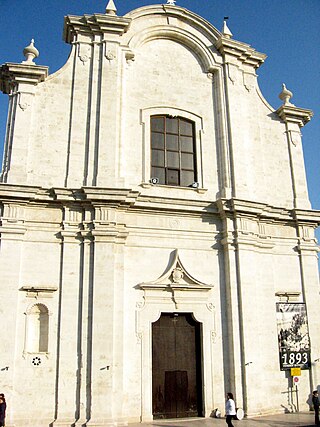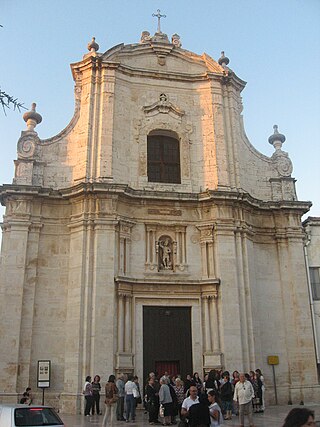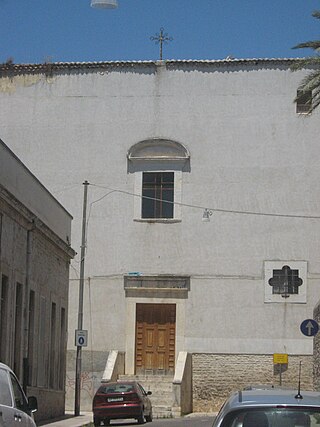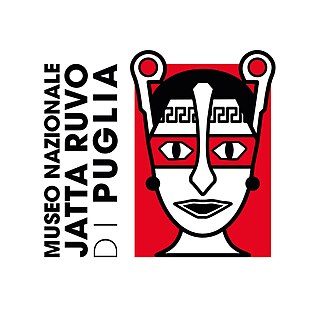8 Sights in Ruvo di Puglia, Italy (with Map and Images)
Legend
Welcome to your journey through the most beautiful sights in Ruvo di Puglia, Italy! Whether you want to discover the city's historical treasures or experience its modern highlights, you'll find everything your heart desires here. Be inspired by our selection and plan your unforgettable adventure in Ruvo di Puglia. Dive into the diversity of this fascinating city and discover everything it has to offer.
Sightseeing Tours in Ruvo di Puglia1. Santuario di Santa Maria di Calentano
The sanctuary of Santa Maria di Calendano is a sacred building in Calendano, a hamlet of Ruvo di Puglia. The temple is one of the oldest churches in the entire Rubastino countryside as it was founded in the Middle Ages and later used by the Templars as a domus or refuge.
2. Chiesa del Purgatorio
The Church of Purgatory is a Catholic place of worship in Ruvo di Puglia located in Largo San Cleto. Today's building is the result of the union of two adjacent ancient churches, the church of San Cleto and the church of San Michele Arcangelo. It is currently the seat of the Confraternity of Purgatory.
3. Chiesa del Santissimo Redentore
The Church of the Most Holy Redeemer is a religious building in Ruvo di Puglia, located in Piazza Giacomo Matteotti. Although the church was consecrated as early as 1902, the completion of the façade and the bell tower was completed only in 1955. The temple is currently the seat of an extensive parish area so as to enjoy four rectories, such as the church of the Annunziata, the church of San Rocco, the church of Santa Caterina d'Alessandria and the church of San Giacomo al Corso. The church is dedicated to the Most Holy Redeemer and is vicar of the Cathedral parish.
Wikipedia: Chiesa del Santissimo Redentore (Ruvo di Puglia) (IT)
4. Chiesa dell'Annunziata
The Church of the Annunziata is a sacred building in Ruvo di Puglia located in Largo Annunziata. It was built at the end of the fourteenth century when the inhabitants of the hamlet of Calentano retired to Ruvo.
5. Chiesa di San Domenico
The church of San Domenico is an important church in Ruvo di Puglia located in Piazza Giovanni Bovio. The temple, with an adjoining convent, was built in the second half of the sixteenth century at the behest of the Order of Friars Preachers. The religious building was then rebuilt in the eighteenth century and entrusted to the Piarist Fathers. The convent is currently used as a civic museum.
6. Chiesa di San Michele Arcangelo
The church of San Michele Arcangelo is a sacred building in Ruvo di Puglia located in Corso Piave. The temple is connected to the convent of the Order of Friars Minor Observant that arose, together with the original church that collapsed in the first half of the eighteenth century, at the behest of St. Francis of Assisi passing through Ruvo. Currently the convent houses a retirement home.
Wikipedia: Chiesa di San Michele Arcangelo (Ruvo di Puglia) (IT)
7. Chiesa dei Cappuccini
The Capuchin Church, also known as Santa Lucia Vecchia, is a sacred building in Ruvo di Puglia located in Via Don Minzoni. The temple is rarely opened for worship as the new parish of Santa Lucia has been built since 1999.
8. Museo archeologico nazionale Jatta
The Jatta National Archaeological Museum in Ruvo di Puglia, a historic and artistic city in southern Italy, is housed in rooms of Palazzo Jatta and represents the only example in Italy of a nineteenth-century private collection that has remained unaltered from its original museographic concept. The finds preserved in the museum were collected by the archaeologist Giovanni Jatta in the early nineteenth century and his collection was subsequently enriched by his nephew of the same name and was sold to the Italian state in the twentieth century.
Wikipedia: Jatta National Archaeological Museum (EN), Website
Share
How likely are you to recommend us?
Disclaimer Please be aware of your surroundings and do not enter private property. We are not liable for any damages that occur during the tours.
